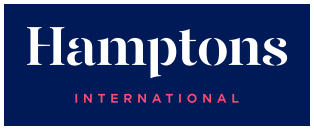Uncovering Hidden Expenses in Homeownership
Category Branch Article
The attainment of homeownership is a substantial accomplishment, embodying stability, autonomy, and the fulfilment of lifelong aspirations. Nevertheless, beneath the excitement of acquiring a new property lies the need to be mindful of unforeseen expenses that inevitably accompany homeownership. This comprehensive guide will delve into three pivotal yet often underestimated financial responsibilities: utility charges, property rates, taxes, levies, and the indispensable role of homeowners insurance.
Oversight of Consumption with Utility Fees
Local municipalities play a crucial role in delivering essential services like water and electricity to residences. However, these services are not without cost, and homeowners are obligated to cover the expenses based on their monthly consumption. Utility fees are intricately tied to usage, meaning higher consumption translates to higher monthly bills.
To adeptly manage and control utility expenses, consider implementing the following strategies:
-
Monitoring Consumption: Consistently monitor water and electricity meters to swiftly identify potential leaks or inefficiencies in your home's systems. This proactive approach allows for early detection and resolution of issues before they escalate.
-
Embracing Conservation Practices: Adopting simple yet impactful conservation habits can significantly curtail utility bills. Encouraging family members to turn off lights and appliances when not in use, promptly addressing leaky faucets, and investing in energy-efficient appliances are all measures that contribute to reduced electricity consumption and lower bills.
-
Exploring Sustainable Energy Solutions: Consider investing in renewable energy sources like solar panels or wind turbines to supplement your electricity needs. While the initial investment might be substantial, the long-term benefits in terms of savings and environmental impact often outweigh the costs.
Recognizing Financial Obligations: Property Rates, Taxes, and Levies
Property-related expenses constitute a significant financial consideration for homeowners, encompassing municipal rates, taxes, and levies. The specific charges vary based on the type of property you own, whether it's a standalone house or a sectional title property like a condominium or apartment.
For standalone homes, monthly municipal rates and taxes cover crucial services such as sewage, road maintenance, and waste collection. These charges play a pivotal role in maintaining the infrastructure and amenities that contribute to the quality of life in your neighbourhood.
On the other hand, sectional title properties are subject to levies, encompassing a broader range of expenses associated with managing the complex. In addition to municipal rates and taxes, levies may include costs related to building insurance, repairs, maintenance, and shared facilities.
To navigate these financial commitments effectively:
-
Prudent Budgeting: Integrate property-related fees into your monthly budget to ensure seamless coverage without financial strain. Allocating a specific portion of your income for these costs ensures a dedicated fund.
-
Staying Informed: Familiarize yourself with the breakdown of property fees, understand the services they fund. Regular attendance at homeowners' association meetings or consultations with property management keeps you informed about any changes or developments.
-
Anticipating Adjustments: Property fees may fluctuate due to shifts in municipal policies, inflation, or evolving maintenance needs. Be prepared for potential increases by incorporating a financial buffer into your budget.
Homeowners Insurance: A Shield for Your Investment
Homeowners insurance stands as a critical element of responsible homeownership, offering financial protection against unforeseen events such as natural disasters, fires, theft, and liability claims. While obtaining homeowners insurance is mandatory for securing a home loan, selecting a policy tailored to your specific needs and budget is equally crucial.
When considering homeowners insurance:
-
Evaluate Coverage Needs: Scrutinize the value of your property and belongings to determine the appropriate level of coverage. Factors such as the replacement cost of your home, the value of personal belongings, and potential additional liabilities should all be considered.
-
Compare Insurance Policies: Undertake a thorough comparison by obtaining quotes from multiple providers. Pay careful attention to policy exclusions, deductibles, and coverage limits to ensure comprehensive protection.
-
Consider Supplementary Coverage: While homeowners insurance generally covers the structure of your home, it might not provide comprehensive protection for personal belongings. Consider purchasing supplementary coverage, such as home contents insurance, to shield your possessions against theft, damage, or loss.
In conclusion, homeownership offers myriad benefits and opportunities for personal and financial advancement. However, approaching this significant milestone demands meticulous consideration and readiness for the associated costs. By comprehending and planning for utility fees, property rates, taxes, levies, and homeowners insurance, you can confidently navigate the intricacies of homeownership, ensuring the enjoyment of the rewards of your dream home for many years to come.
Author: 8116





 Beyond your expectation
Beyond your expectation